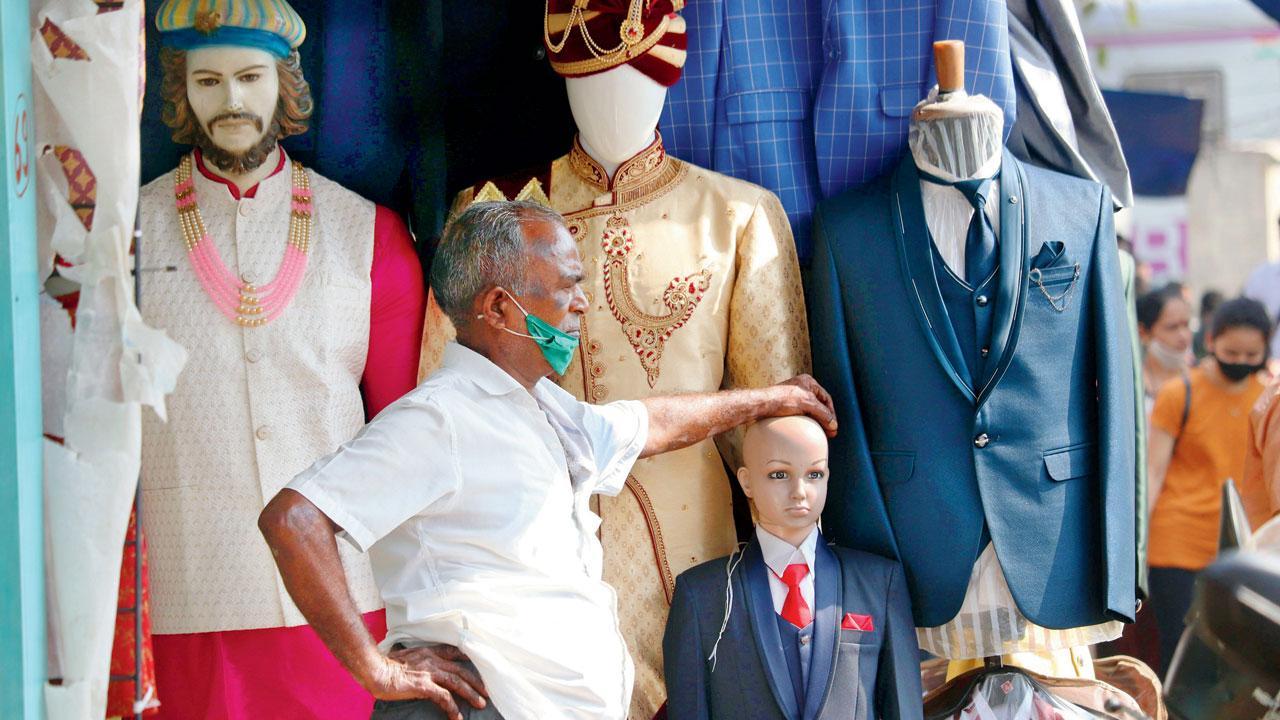As consumers are already struggling in these times and will wince from the pinch, traders have sent an avalanche of communication and representations to the government and GST Council seeking a rollback

Traders have sent a number of communications to the GST Council and the government seeking a rollback of the 7 per cent hike in GST rate for footwear and garments. Representation pic
It is a troublesome twelve for retailers as garments and footwear will become pricier with the GST rates on these hiked from 5 to 12 per cent, effective from January 1, 2022. As consumers are already struggling in these times and will wince from the pinch, traders have sent an avalanche of communication and representations to the government and GST Council seeking a rollback.
ADVERTISEMENT
Paperwork piles
Sandip Shah, vice-president of Engineering and Industrial Store Merchants Association (EISMA), said, “Though this may not affect me directly as I do not retail garments and footwear, we still do fall under the traders umbrella. This decision of a jump in taxes is absolutely wrong. The problem is that decisions are taken without consulting the affected party, in this case, the traders. Do we have to take to the streets like the farmers did during their recent agitation?”
He added, “Our Finance Minister N Sitharaman, I think, does not take a practical approach and does not truly understand the implications of this. In fact, there are those in the government who simply go by the book. This is because they have not ever traded. This is adding to so much hardship we are already facing. Even the Chartered Accountants (CAs) are tired and frustrated about the amount of paperwork that has increased, files have almost doubled since GST has been implemented..”
The loopholes
Ketan Shah, secretary of EISMA, said, “This is going to have an adverse effect on the whole, and in fact, we may even see many traders exploiting loopholes to try and evade this tax. We have a 12 per cent GST on goods above Rs 1,000 anyway, and now we see a 7 per cent jump on goods under Rs 1,000 which will be passed on to the consumer. In these pandemic times, we expected the government to work towards some kind of concessions for the industry. But, the opposite has happened. We have been dealt a blow, and this has weakened an already wobbly structure.” The traders concerned said garments and footwear under Rs 1,000 were not luxury goods. This will affect a very huge swathe of people “as clothes and footwear are needed by everyone. Today, the overall sentiment is anger against the government,” they said.
Job loss
Viren Shah, president of Federation of Retail Traders Welfare Association (FRTWA), said, “We have taken serious objection and demand a rollback of GST on garment and footwear. This will lead to massive job losses. Prices of products will rise by 15 to 20 per cent with such a huge GST hike. This will affect consumers, especially the middle and lower class of the society. This is a literal death knell for the industry.” He also said, “Traders have to pay the tax even before selling the garment. The manufacturer takes the cheque. We get our money after we sell, which may be a week, a month or several months. This is advantageous to the government while the traders have the losing hand.” He hoped that today, the last day of the year, “brings some good news of a rollback.”
Poll speak
Sunil Shah, president of Dadar Vyapari Sangh, said, “We have been raising objections to this since Day One, when there was a 5 per cent GST on wares under Rs 1,000 and a 12 per cent GST over Rs 1,000. We had told the government that we want one, uniform flat rate of GST. Many people have also been exploiting loopholes because of these disparate rates. Now this 7 per cent jump for wares under Rs 1,000, is the worst possible for everyone. Make in India is certainly not possible in such a scenario.” The Dadar honcho claimed, “This is not Make in India but fooling India. Anyway, we are supposed to accept any and all decisions, as of now. All the vyaparis and trade associations had voted largely in favour of this government. We may be forced to accept such decisions now, but we will give our answer in the forthcoming elections.”
 Subscribe today by clicking the link and stay updated with the latest news!" Click here!
Subscribe today by clicking the link and stay updated with the latest news!" Click here!







